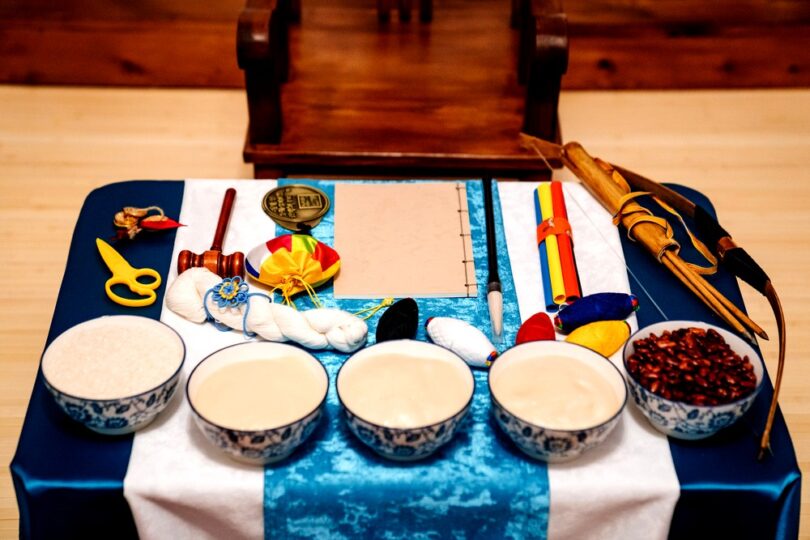So why is Doljabi still so important? To reiterate, it is a celebration of one’s child at its foundation. In the olden days, a child’s first birthday was celebrated because many children didn’t survive up to this age. Even if you’re not at risk of famine or some other pressing health crisis, it’s still a feat to raise a child and for the kid to grow up to that point.
Celebrating the first birthday of a child is a joyous occasion in any culture including Koreans in Los Angeles. It’s important because Doljabi signifies a beginning and provides an opportunity to a parent to introduce Korean culture to their Korean baby who’s born in the states. If we break down the name of the celebration, the first birthday is called a “dol” (돌) or “doljanchi” (돌잔치) in Korean. Although it is rare to be in a situation with a lack of medicinal knowledge and childhood disease, making it to a first birthday is still something worthy of praise.
Korean Birthday Culture and the Ties to Religion
Korean birthday celebrations or Dol are one of the important facets of Korean culture. It’s so important that some Koreans who are indifferent to Korean culture will still practice Doljanchi. Dol (doljanchi, or dol) is probably one of the best-known of the Korean birthday celebrations with the term specifically meaning 365 days of life for the child. Doljabi was to celebrate the baby’s first birthday and to provide blessings to the baby through the tradition of Doljabi. Doljabi items were used, each with their own unique representation tied with a blessing or prestigious career, and were believed to a large extent to fulfill their blessings.
During Doljanchi, prayers were also made. After everything on the praying table was ready, the mother (or grandmother) of the child would reach out to Sanshin and Samshin in prayer. She would ask for a long life for the child, luck from the mountain god, and give thanks to the birth goddess. After she finished her prayer, she bowed to Samshin several times. Only women were the only ones allowed to participate in this ceremony. However, this is something that is actually not commonly continued in today’s Doljanchi festivities because religion in Korea and the United States is not what it used to be in the past. Now, a large majority of Koreans follow a specific denomination in Christianity although Catholicism was first introduced during the late Joseon Dynasty period by Confucian scholars who encountered it in China.
Before Korea was split into two, the peninsula was predominantly influenced by Korean folk religion. Korean superstition was prevalent in Korea and heavily influenced many traditions including Doljanchi. Korean superstition had such a strong tie with Korean culture that it influenced many minor details in traditions. In Doljanchi for example, specific foods like noodles were eaten because noodles were adamantly believed to associate with long life, specific colors were worn because specific colors were believed to invite specific types of spirits, and even Doljabi items were believed to hold a prediction about the baby’s future.
Created with the help of Joteta Korean Online Shop








